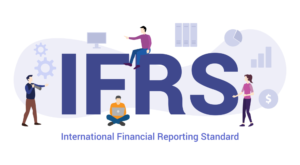 Sustainability reporting is no longer a nice to have—it is fast becoming a global requirement. With the introduction of IFRS S1 (General Sustainability Disclosures) and IFRS S2 (Climate-Related Disclosures), companies worldwide are under increasing pressure to disclose their ESG performance in a structured, transparent manner.
Sustainability reporting is no longer a nice to have—it is fast becoming a global requirement. With the introduction of IFRS S1 (General Sustainability Disclosures) and IFRS S2 (Climate-Related Disclosures), companies worldwide are under increasing pressure to disclose their ESG performance in a structured, transparent manner.
In Nigeria, the shift toward mandatory sustainability reporting is gaining momentum. The Nigerian Stock Exchange (NGX) introduced ESG disclosure guidelines, and the Central Bank of Nigeria (CBN) requires sustainable banking principles. However, while some companies are proactively aligning with global standards, many are unprepared for the regulatory wave that is coming.
So, the big question remains: Is Nigeria ready for mandatory sustainability reporting? And if not, what needs to change?
The Global Push for Mandatory Sustainability Reporting
The International Sustainability Standards Board (ISSB) has established IFRS S1 and S2 to provide a global baseline for sustainability disclosures. These standards are already being adopted in Europe, the UK, and parts of Asia, where companies must:
- Report ESG risks and opportunities that affect financial performance
- Disclose climate-related risks, including carbon emissions and mitigation strategies
- Provide transparent, investor-focused sustainability information
Many African countries, including South Africa and Kenya, are progressing toward mandatory sustainability disclosures. Nigeria cannot afford to lag behind, especially if it wants to attract foreign investment and strengthen its global trade relationships.
The Current State of Sustainability Reporting in Nigeria
Nigeria has made some progress in ESG reporting, but challenges remain. Here is where the country currently stands:
- Nigerian Stock Exchange (NGX) ESG Disclosure Guidelines – Publicly listed companies are encouraged (but not yet required) to disclose their sustainability performance.
- CBN’s Sustainable Banking Principles – Financial institutions must integrate social and environmental risks into their lending and investment decisions.
- Petroleum Industry Act (PIA) ESG Requirements – Oil and gas companies must set aside 3% of their annual operating expenses for host communities and ensure environmental accountability.
- Limited adoption beyond regulated sectors – While banks, oil companies, and large corporations are embracing ESG reporting, many SMEs and non-listed companies remain uninformed and unprepared.
Clearly, Nigeria has some ESG structures in place, but there is no unified, legally binding requirement for all companies to disclose sustainability performance—yet.
Challenges Holding Nigeria Back
- Lack of Awareness – Many Nigerian businesses still do not understand ESG reporting, seeing it as a foreign or Western-driven concept.
- High Compliance Costs – Sustainability reporting requires data collection, training, and expert analysis, which some companies view as too expensive.
- Weak Enforcement Mechanisms – Existing ESG policies are not strictly enforced, allowing companies to avoid reporting with little consequence.
- Short-Term Business Mindsets – Many organisations focus on immediate financial returns, failing to see the long-term benefits of ESG compliance.
If mandatory sustainability reporting is to be successful in Nigeria, these challenges must be urgently addressed.
The Business Case for Mandatory Sustainability Reporting
While compliance may seem like a burden, the reality is that sustainability reporting offers significant advantages:
- Increased Investment Opportunities – Foreign and institutional investors now prioritise ESG-compliant businesses
- Stronger Brand Reputation – Companies that report transparently build greater consumer trust and competitive advantage.
- Better Risk Management – Sustainability reporting helps companies identify and mitigate financial and operational risks before they escalate.
- Regulatory Preparedness – Aligning with global ESG standards today ensures that businesses stay ahead of future regulatory requirements.
What Needs to Change? Steps Toward Mandatory Reporting
For Nigeria to fully embrace mandatory sustainability reporting, key actions must be taken:
- Government-Led Regulation – The Federal Government, NGX, and CBN must establish clear, enforceable reporting guidelines for all sectors.
- Capacity Building & Training – Businesses need structured training programs to build sustainability expertise, such as CSR-in-Action’s GRI-certified sustainability training.
- Incentives for Compliance – Tax breaks or funding access for ESG-compliant businesses can encourage more companies to adopt reporting standards.
- Technology & Data Infrastructure – Companies need tools to measure and track ESG performance efficiently.
- Public-Private Collaboration – Partnerships between government agencies, corporate leaders, and sustainability experts can accelerate ESG integration across industries.
Final Thought: A Turning Point for Nigerian Businesses
Nigeria is at a crossroads. As sustainability reporting moves from voluntary to mandatory worldwide, businesses must decide whether to proactively align with global standards or risk falling behind.
At CSR-in-Action, we are committed to helping Nigerian businesses navigate the sustainability reporting landscape, ensuring they are not just compliant, but competitive in the evolving global market.
Is your organisation prepared for the future of ESG reporting? Let CSR-in-Action guide you through the transition.

